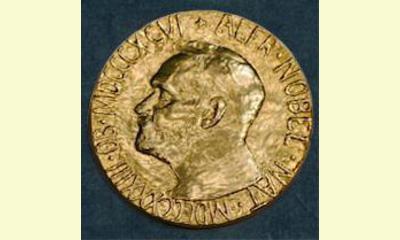|
|
The Nobel Peace Prize 2012 awarded to the European Union (EU)
an article by David Adams
The Nobel Peace Prize 2012 has been awarded to the European Union (EU) "for over six decades contributed to the advancement of peace and reconciliation, democracy and human rights in Europe", according to the Official Website of the Nobel Prize.

click on photo to enlarge
Response to the prize has been mixed. The International Peace Bureau (IPB), itself a Nobel Peace Prize winner a century ago, states the following, "The arguments given by the Norwegian Nobel Committee are not entirely false. The EU has played the historical role that it describes. All forms of cooperation contain some elements of peacefulness, and there is indeed a strong case for regional approaches to peacemaking between states and peoples, and in this the EU has been a pioneer. But what is worrying are the many aspects the Committee leaves out, making it a highly selective accolade."
Among the aspects left out, according to the IPB, are: European has been involved in wars in Iraq, Afghanistan, Kosovo and Libya; some of the world's biggest arms trading nations are UK, France, Germany and Italy; two EU states have nuclear weapons, UK and France; and the EU has a combined total military budget of $250 billion a year.
The prize announcement provokes the IPB to ask a "deeper question," "Is peacemaking the role of states or peoples?"
A particularly ironic response is that of the recent Presidential candidate in France, Jean-Luc Mélenchon: "Certes, l’Union européenne a garanti la paix aux marchés financiers, aux spéculateurs et aux profits bancaires. Mais ne mène-t-elle pas une guerre contre les peuples qui la composent et leurs droits sociaux ?"
My translation of Mélenchon's comments is the following: "Certainly the EU has guaranteed peace to the financial markets, to speculators and to banking profits. But has it not made war against their people and their social rights?"
The French journal rue89 also sees irony in the prize, given the present economic crisis of Europe, but the journal considers that the prize can be seen as a message of hope: "L’histoire n’est pas finie, et c’est peut-être ce qu’a voulu espérer le comité Nobel en décernant ce prix déconcertant. Prenons-le comme tel, comme un message d’espoir que l’Europe, qui a su surmonter les antagonismes séculiers pour créer un univers pacifié, sache se réinventer au profit de ses citoyens."
My translation of their consideration is that "History is not finished, and perhaps that is what the Nobel Committee wanted to say. We can consider it as a message of hope that Europe, having previously overcome the antagonisms following World War Two, knows how to once again reinvent itself to the advantage of its citizens."
|








|
DISCUSSION
Question(s) related to this article:
Nobel Peace Prize to the European Union, What do you think of this?
* * * * *
Latest reader comment:
We must await a more detailed description of the Nobel Committee's decision in order to know if this prize was awarded for the old idea of peace (simply the absence of war) or the new idea of culture of peace (the positive development of the cultural basis for peace).
Since they have already mentioned two key elements of the culture of peace, democracy and human rights, I hope they will put the emphasis on culture of peace.
If so, it would be good to recall that culture of peace requires more than democracy and human rights. It also requires disarmament which is not evident in the case of the European Union, as pointed out by the International Peace Bureau. It also requires tolerance and solidarity, which is not evident, for example, in the EU treatment of the Roma people. Furthermore, it requires women's equality, education for peace, sustainable development and the free flow of information. Perhaps we can hope, along with rue89 that in the future ithe EU will develop further all these elements of the culture of peace. If the Nobel Prize can help encourage this, then it will be a worthy choice.
Note added on December 10:
As the Prize was awarded today, a letter was sent to the Nobel Committee by previous winners Mairead Maguire, Desmond Tutu and Adolfo Perez Esquivel, criticizing the decision and saying that the EU and its member states "condone security based on military force and waging wars rather than insisting on the need for an alternative approach." The letter may be found here on the Internet.

|
|








